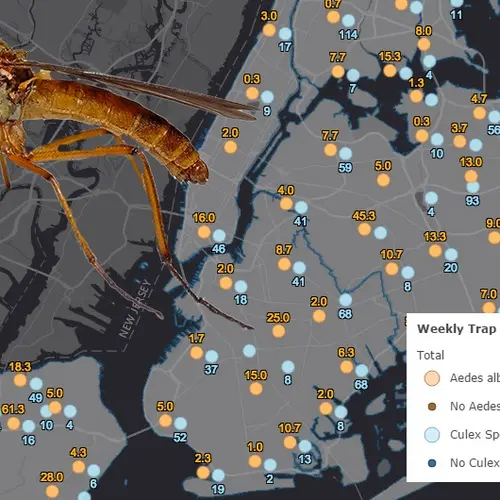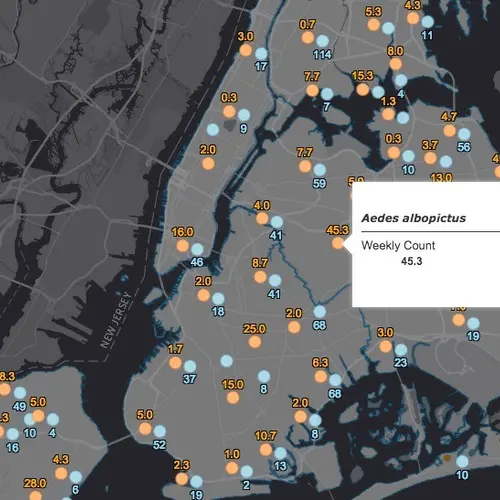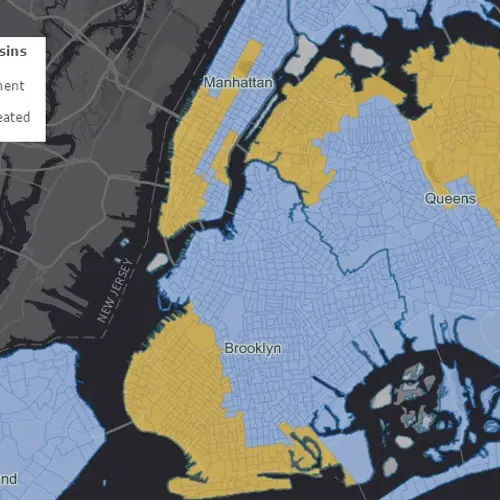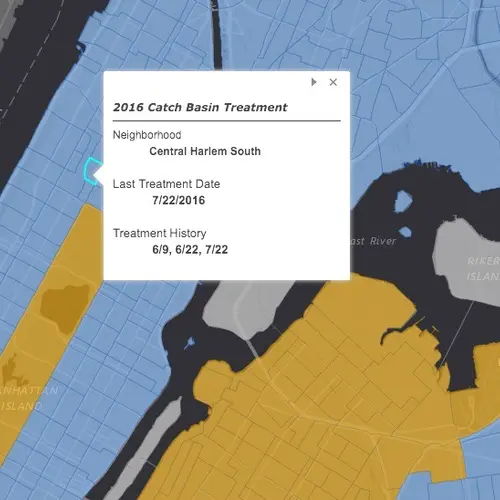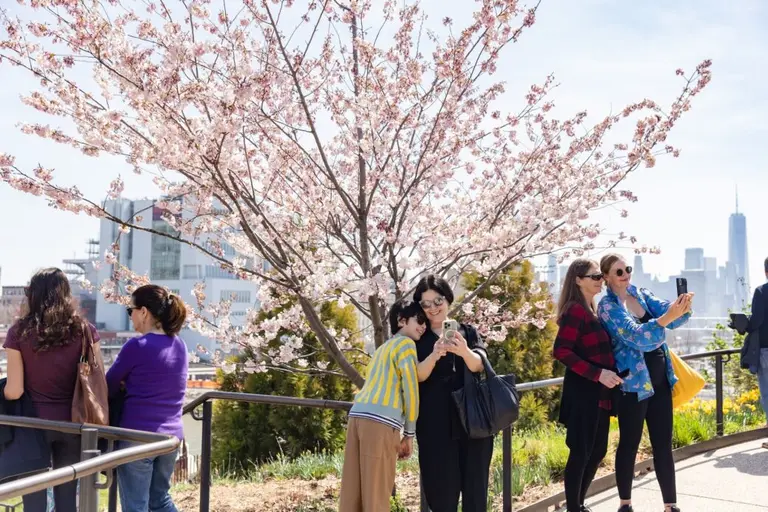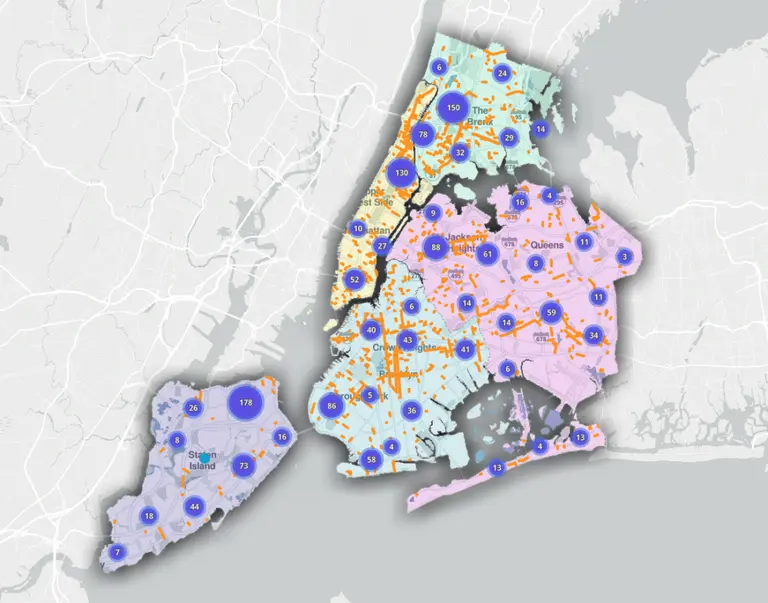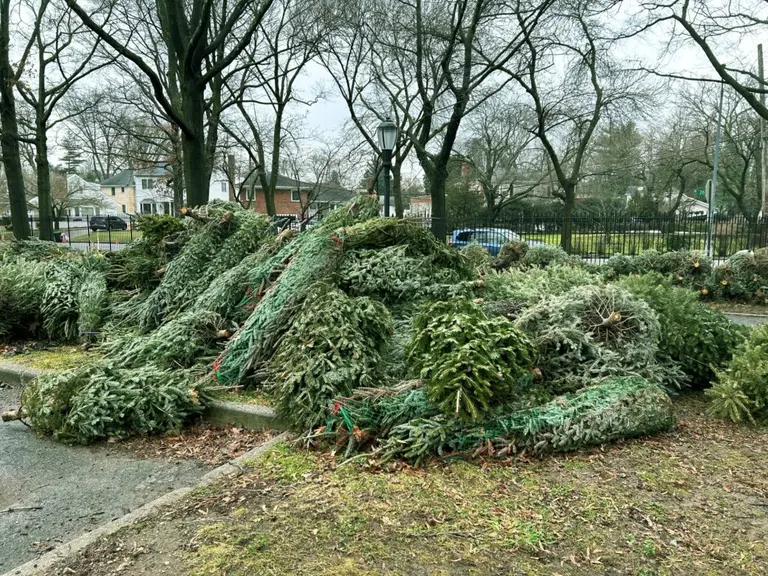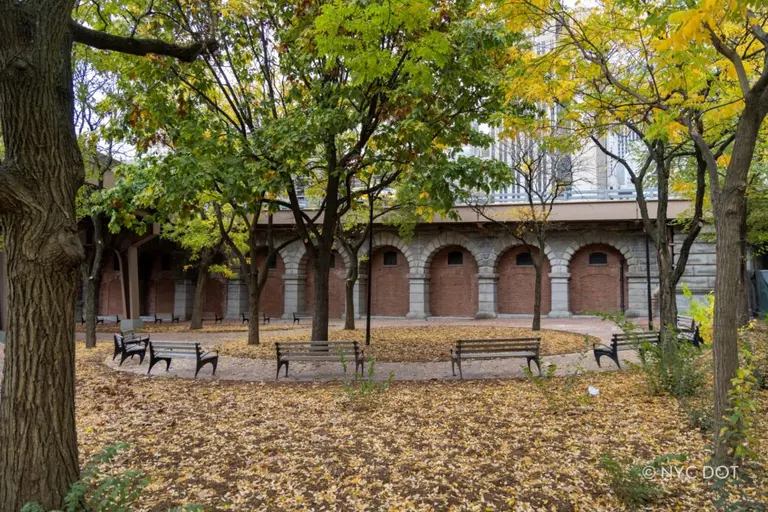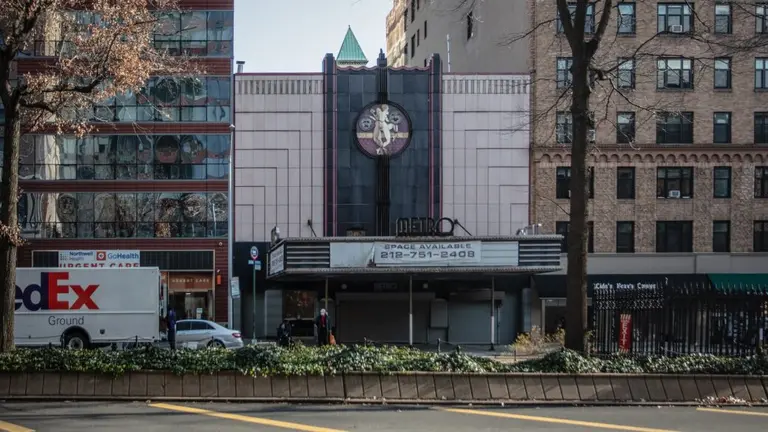MAP: Know where the city is spraying for mosquitoes and where there’s potential for West Nile
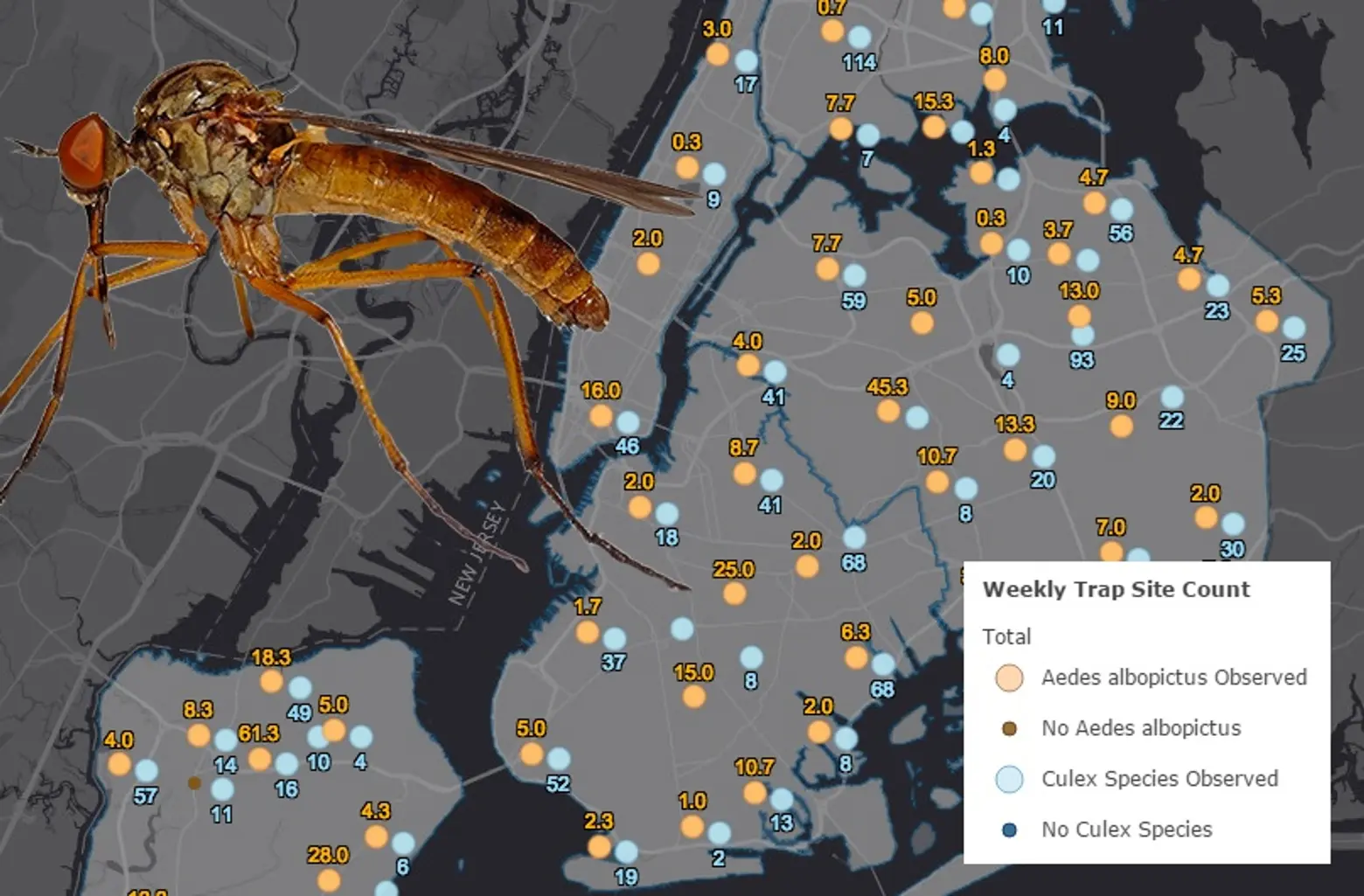
Thankfully, the city has found no mosquitoes carrying Zika, however, as of August 11, they’ve found 141 mosquito traps with the West Nile virus. If this makes you worry about every itchy bite you’ve gotten, this handy (albeit stomach-turning) map series may ease some anxiety. The Department of Health has created the Protecting NYC From Mosquitoes maps that show where and how many pests have been trapped on average each week, and what species they are, as well as the locations of catch basins, backpack larvaciding, helicopter and truck spraying, and standing water violations.
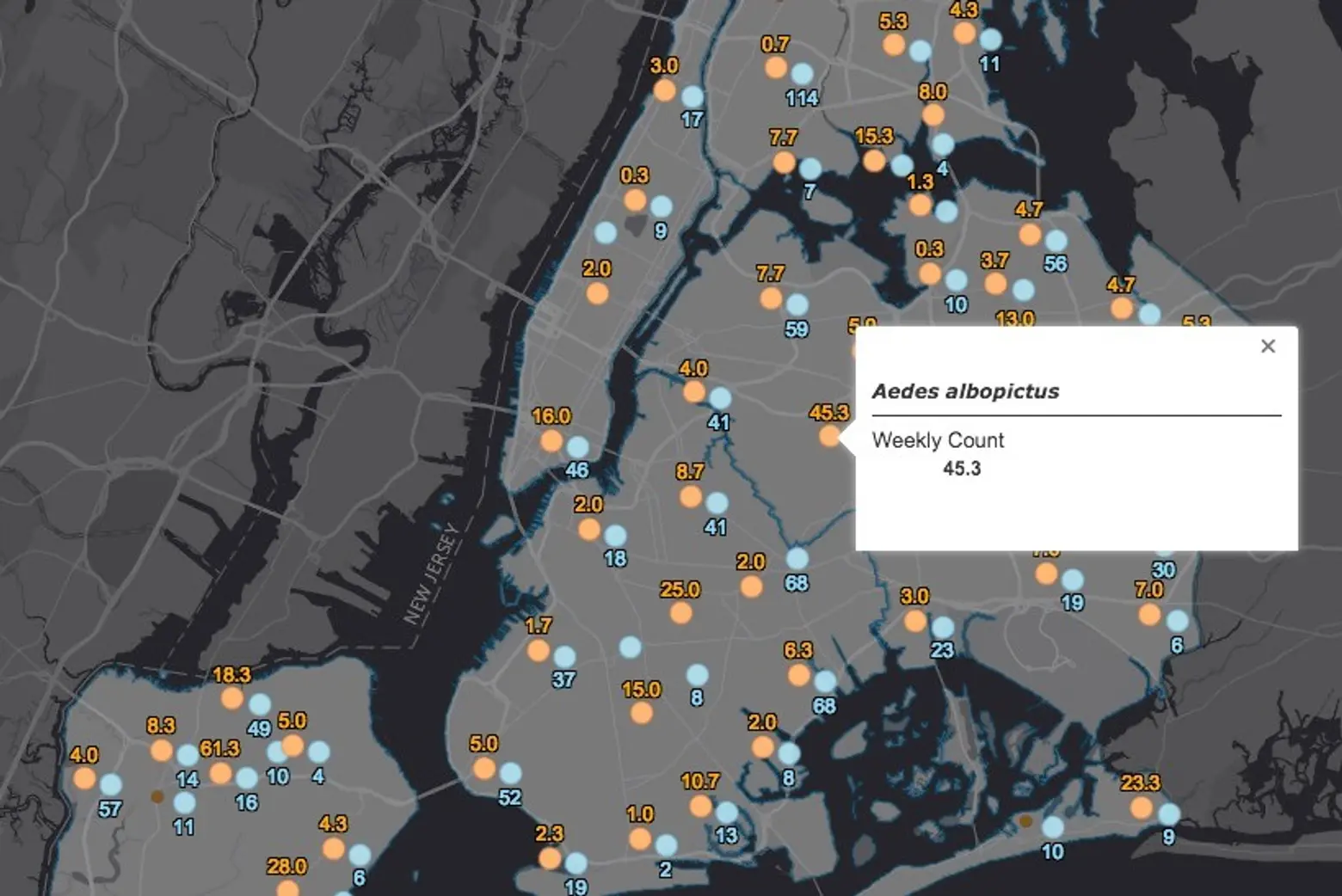
There are two mosquito species in NYC: Culex pipiens and Culex restuans, which can spread West Nile; and Aedes albopictus, which is capable of spreading Zika to people. However, as the city is sure to note, “Just because a mosquito can carry the virus does not mean that it will cause disease. So far, none of the Aedes albopictus trapped in New York have been found to carry the Zika virus.”
The map above shows where these adult mosquitoes have been trapped and tested; the average numbers of mosquitoes don’t correlate with the likelihood of disease.
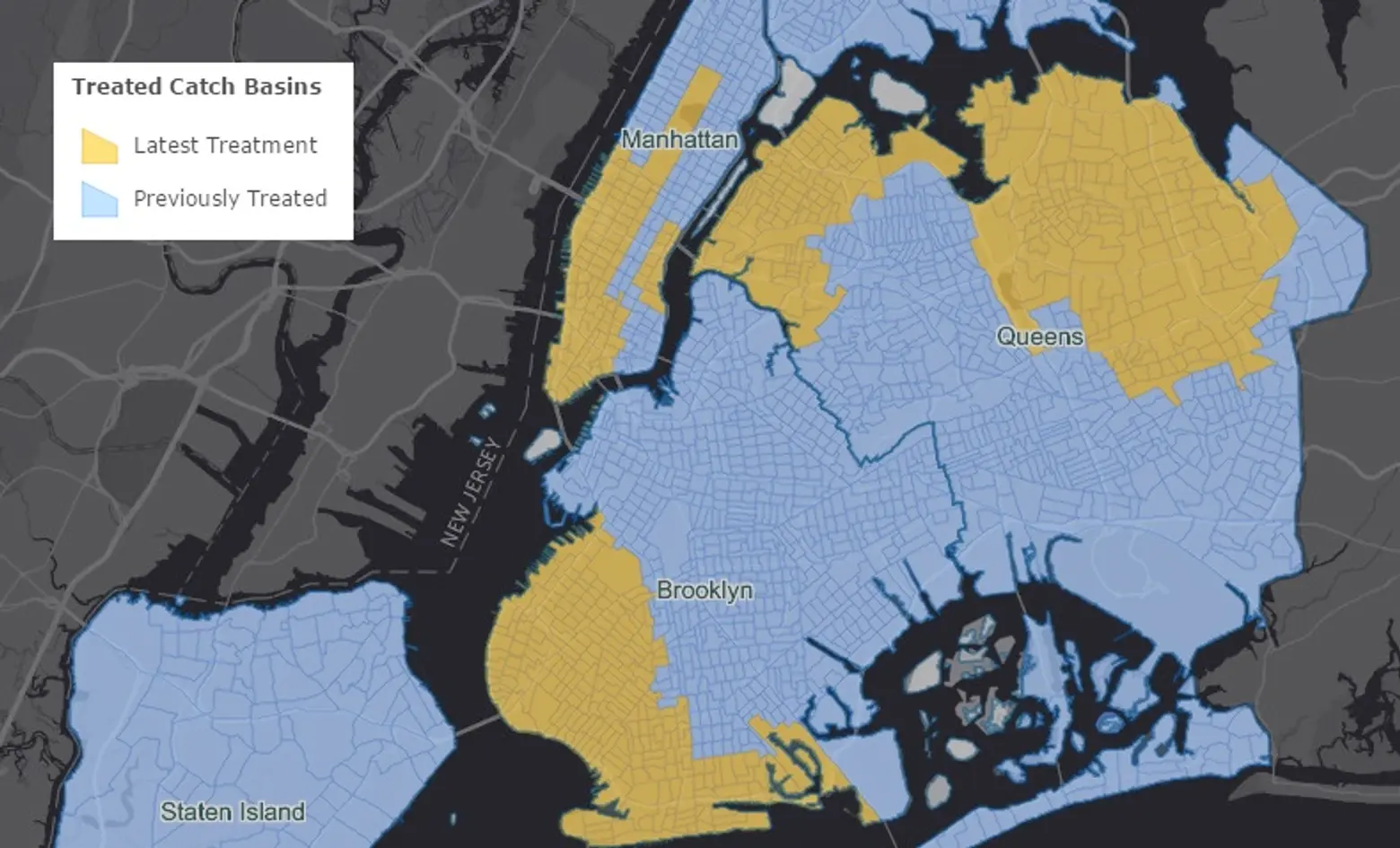
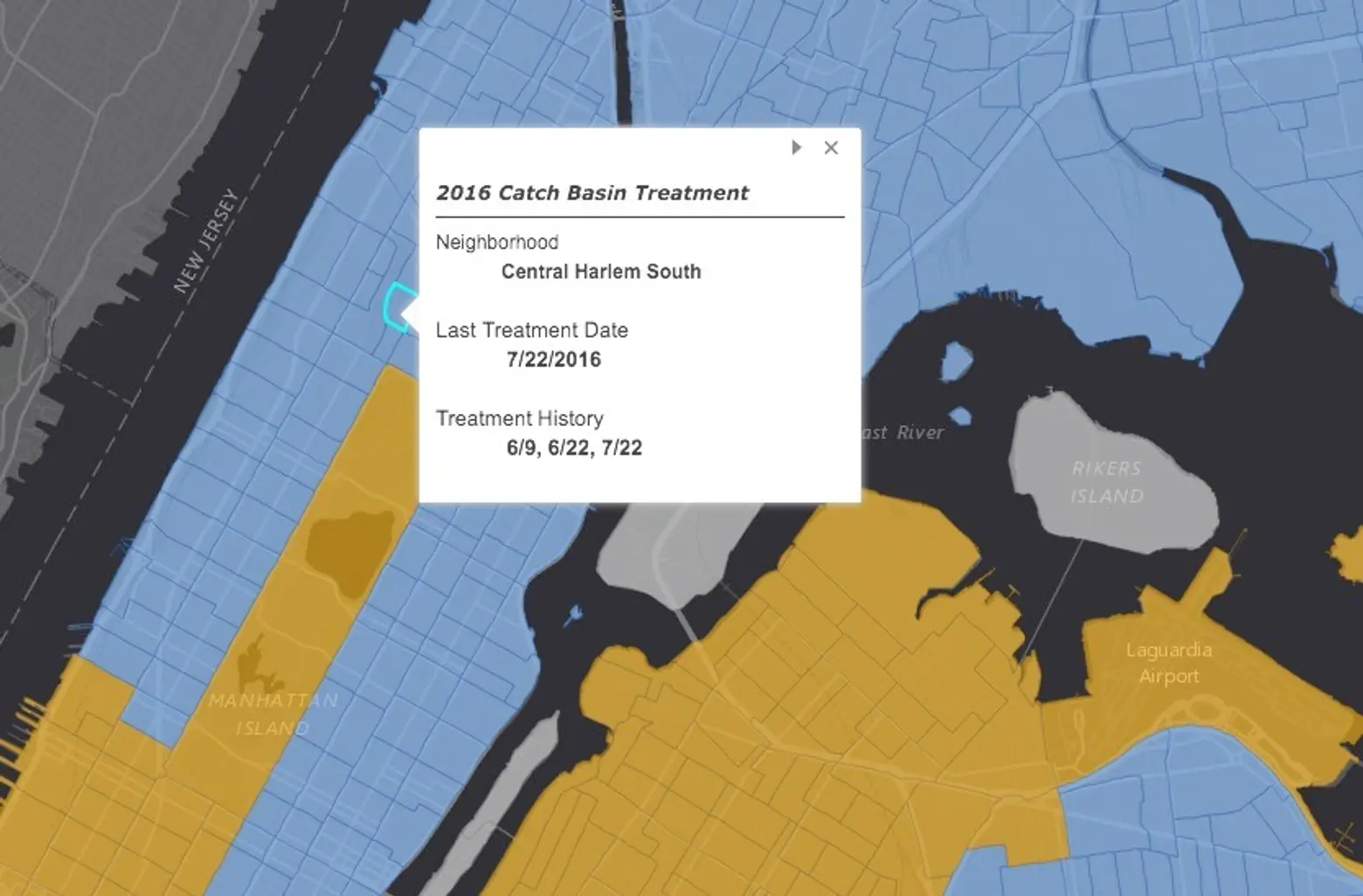
Catch basins, also known as storm drains or sewer grates, can’t be emptied or drained and therefore can be places where mosquitoes lay eggs. The city treats these sites with larvicides, a natural pesticide that kills young mosquitoes, but is harmless to people. The maps above show where the city treated the catch basins by census tract. Treatments are done weekly April through October.
Larvicide can be distributed using backpacking, when licensed exterminators spray the pesticide from a backpack in places like backyards, parks, and cemeteries that can only be reached by foot; helicopters, for marshes and large swampy or forested areas; and trucks, which is called adulticiding since it’s used to kill adult mosquitoes (it’s only performed in non-residential areas).
Explore the full map here >>
RELATED:
